Throw a cat in the air, it will always land on its feet. But what happens when a cat lands in water? I’m that cat in the water. I’ve realized since moving to Spain, no amount of freestyle will keep me afloat when learning the language. Turns out, it requires steeling one’s self from shame and saying si, yes for Spanish. But as to how long would my ‘yes’ endure?
This I must confess. Since my arrival in Spain, I’ve lost count of the times I have said yes to someone or something.
I’m not completely in the dark when it comes to the Spanish language, partly thanks to what was once my family’s fascination with Latin telenovelas in the 90’s. Then recently, there’s Duolingo, a language app introduced by an algorithm advertisement.
“Your cat has a serious urinary tract infection and requires a special anti-stress diet.” Si, I said out loud to the village veterinarian feeling bewildered as I scratched my head. “If your vomiting doesn’t stop, I advise that you take the suppositories.” Si, I replied, contemplating on the act, whilst avoiding direct eye contact with the pharmacist, a spitting image of Antonio Banderas fresh out of a hammam.
Don’t get me wrong. Two weeks of Duolingo peppered with adverts never mentioned anything about a cat’s special diet, let alone a urinary tract infection or human suppositories.
I was acing it when I said “The cat is under the chair” or “She has twelve cats.” The points kept rolling in along with glowing praises from Vikram, one of Duolingo’s characters. I hit it off with: “Those bathrooms are not modern” and did so well describing: “My horse likes TV.”
“Surely you must understand a lot. Your country was under Spanish rule for more than three hundred years and your last name, if anything else, is very Spanish.”, remarked by an American friend.
“What about it?”
Truth is, I rarely understood things despite asking the speaker to repeat. Saying ‘si’ not only sounded polite but I found it was the easiest way out. A get-away car to use when such occasions would arise.
Si to my hairdresser for cutting my hair short and waking up to regretting it the next day. Si to my next-door village neighbors inviting me to a ridiculously late Spanish dinner as I tried to keep myself awake halfway through the second course. Si to a health insurance provider, only to realize a month after that tooth extractions were not part of my policy. Albeit too late to explain it to the dentist who had already jabbed me, magnanimously, with novocain.
But none of this really mattered. If things were to go wrong, I have my unfamiliarity with the language to blame. Admitting that it’s too technical and then crying out ‘¡que barbaridad!’ at the end as it was in the telenovelas.
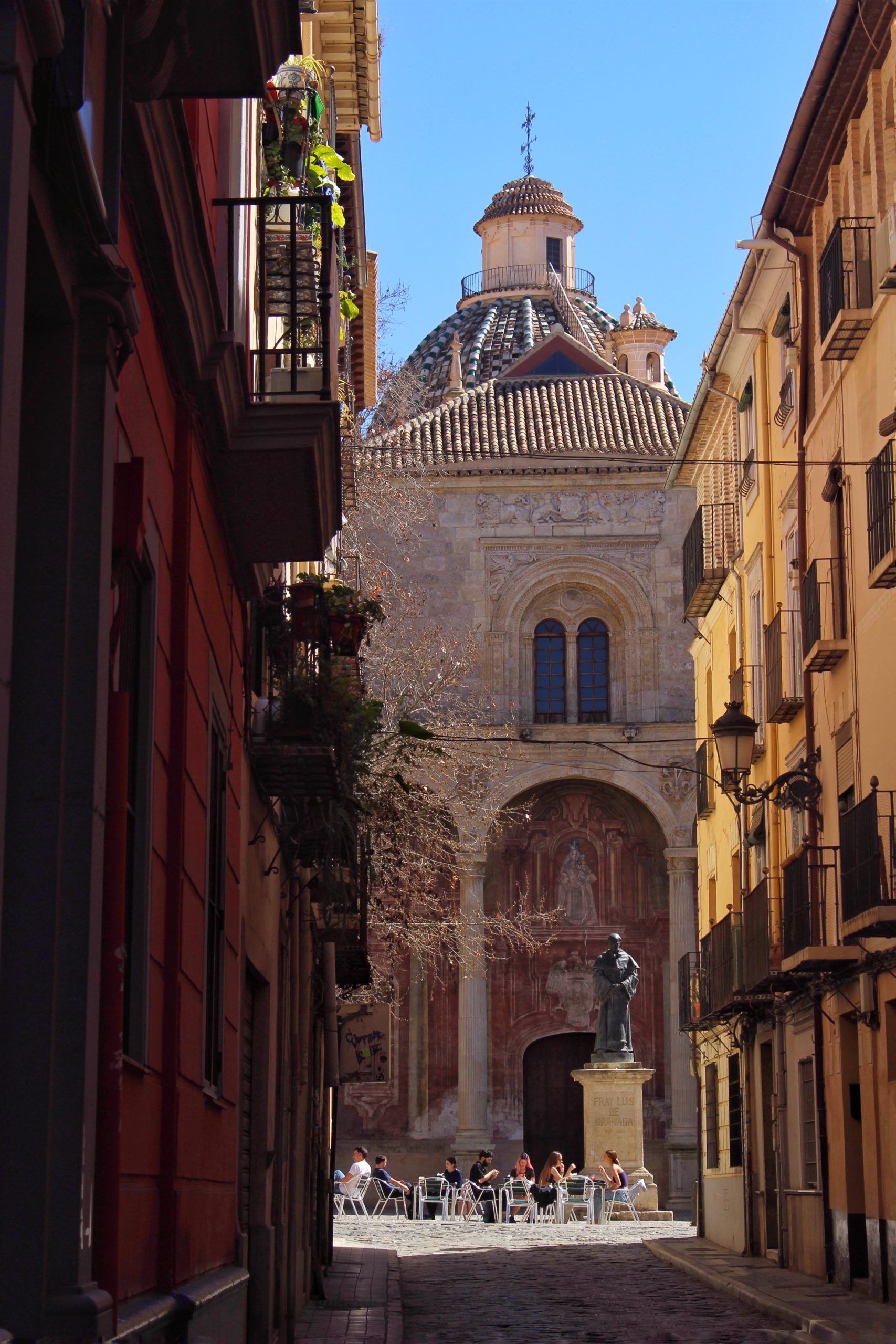
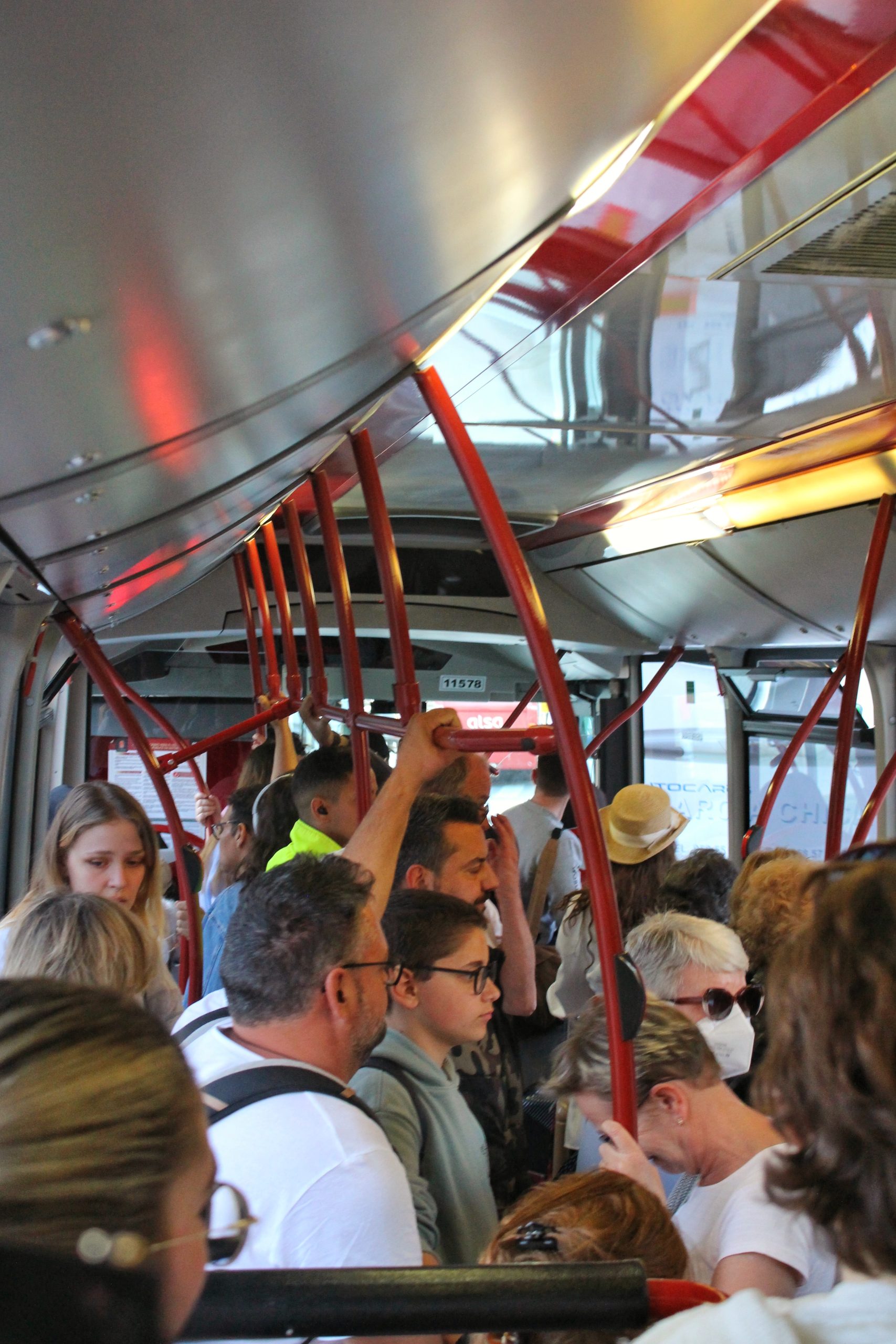

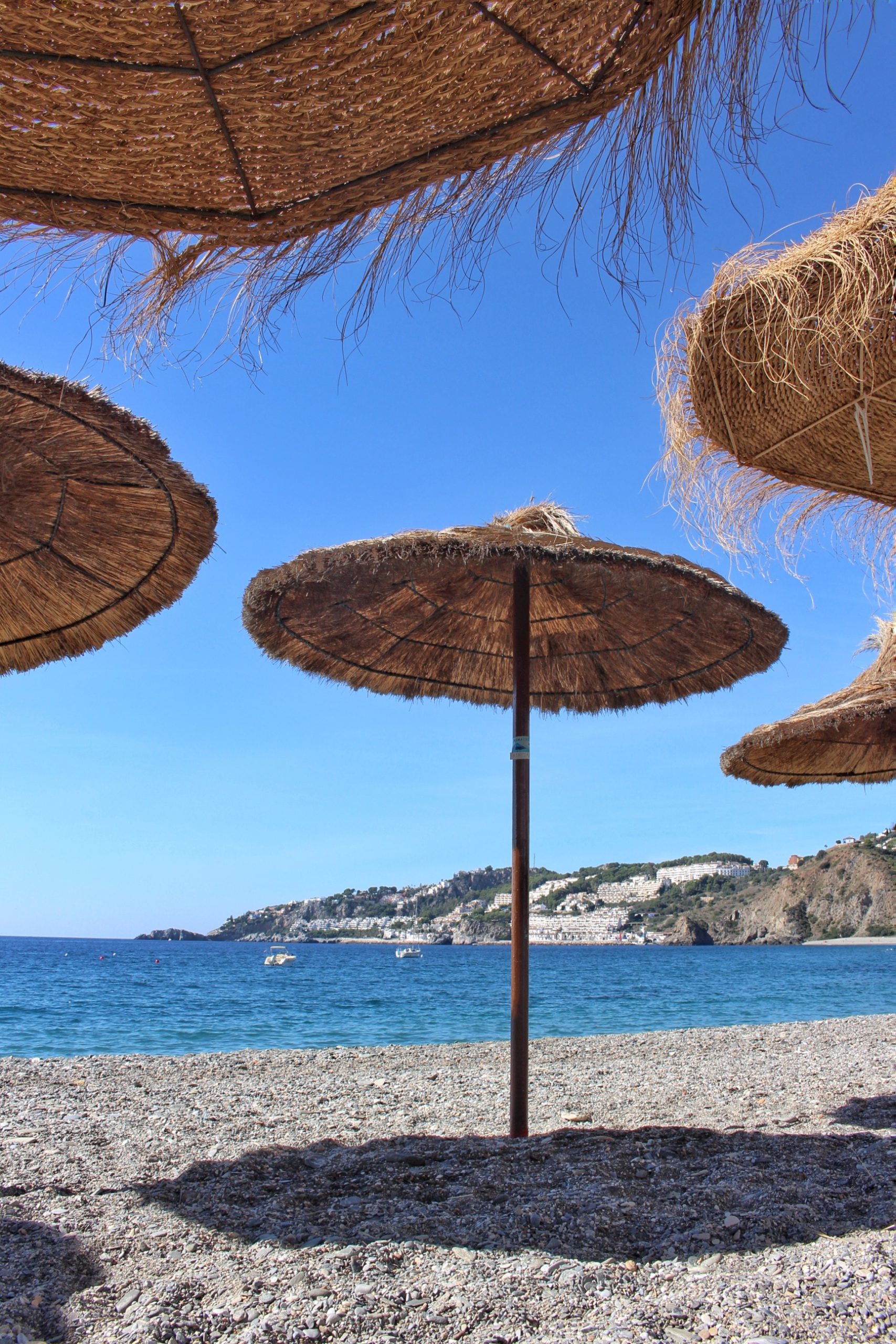

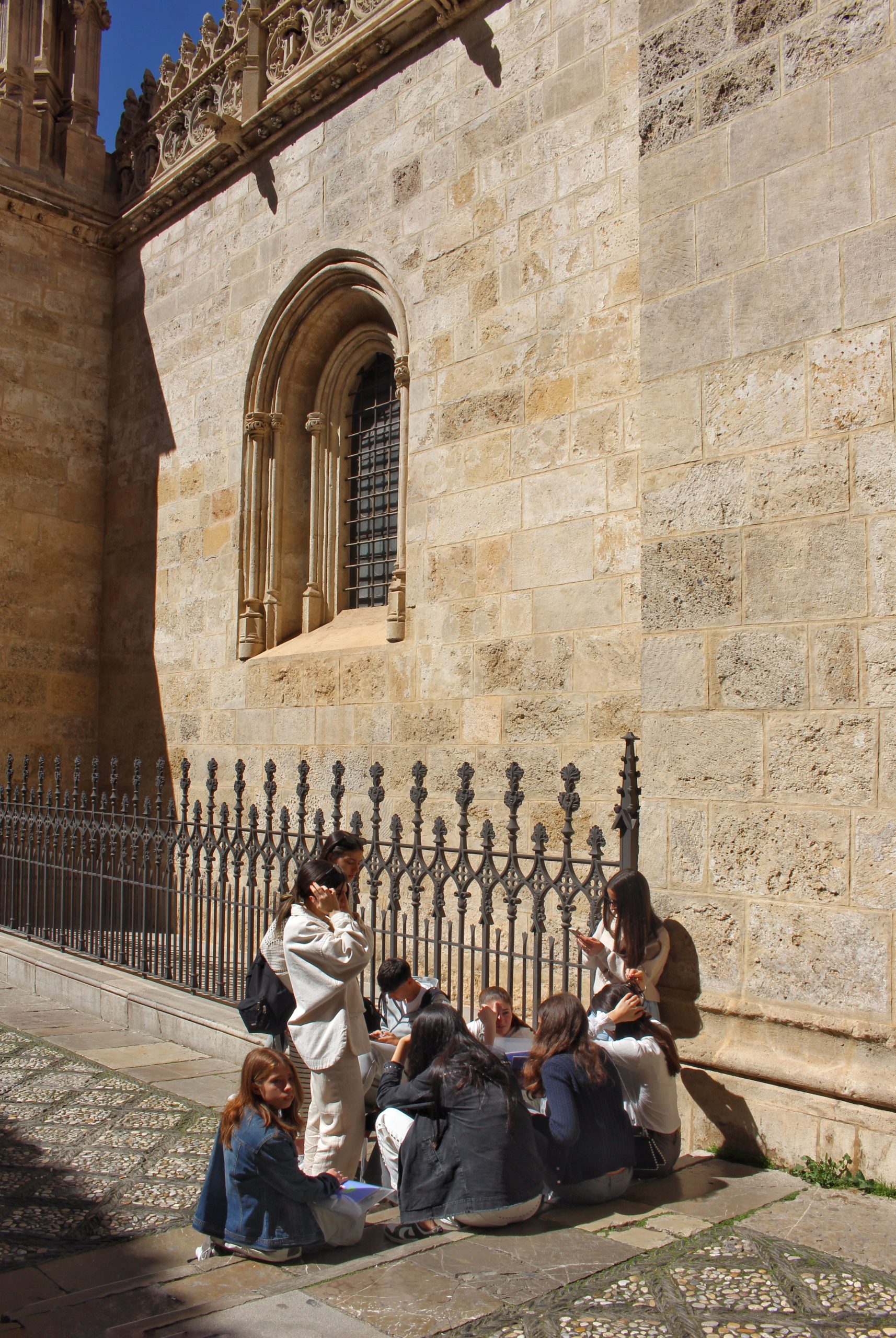

Not long ago, I boarded a crowded bus in Granada and it quickly became apparent that I was to be a genuine witness or a lousy accomplice. Two geriatrics sparred to grab the last seat reserved for handicapped and the elderly. One came, wobbling and with a cane, looked at me as if to seek my approval. “Señora I got in first so I get the seat correct?” The other, hunched and hoisting a knapsack could not have any of this and countered. “Señora, wouldn’t it be right that since I’m slightly older, I deserve the seat?” If only my vocabulary had been more extensive, with trappings of reassuring empathy and eloquence, the matter would have been resolved instantly. Instead, I offered them my only and best possible response – si. It didn’t take long before the bus erupted into chaos. ¡Que barbaridad!
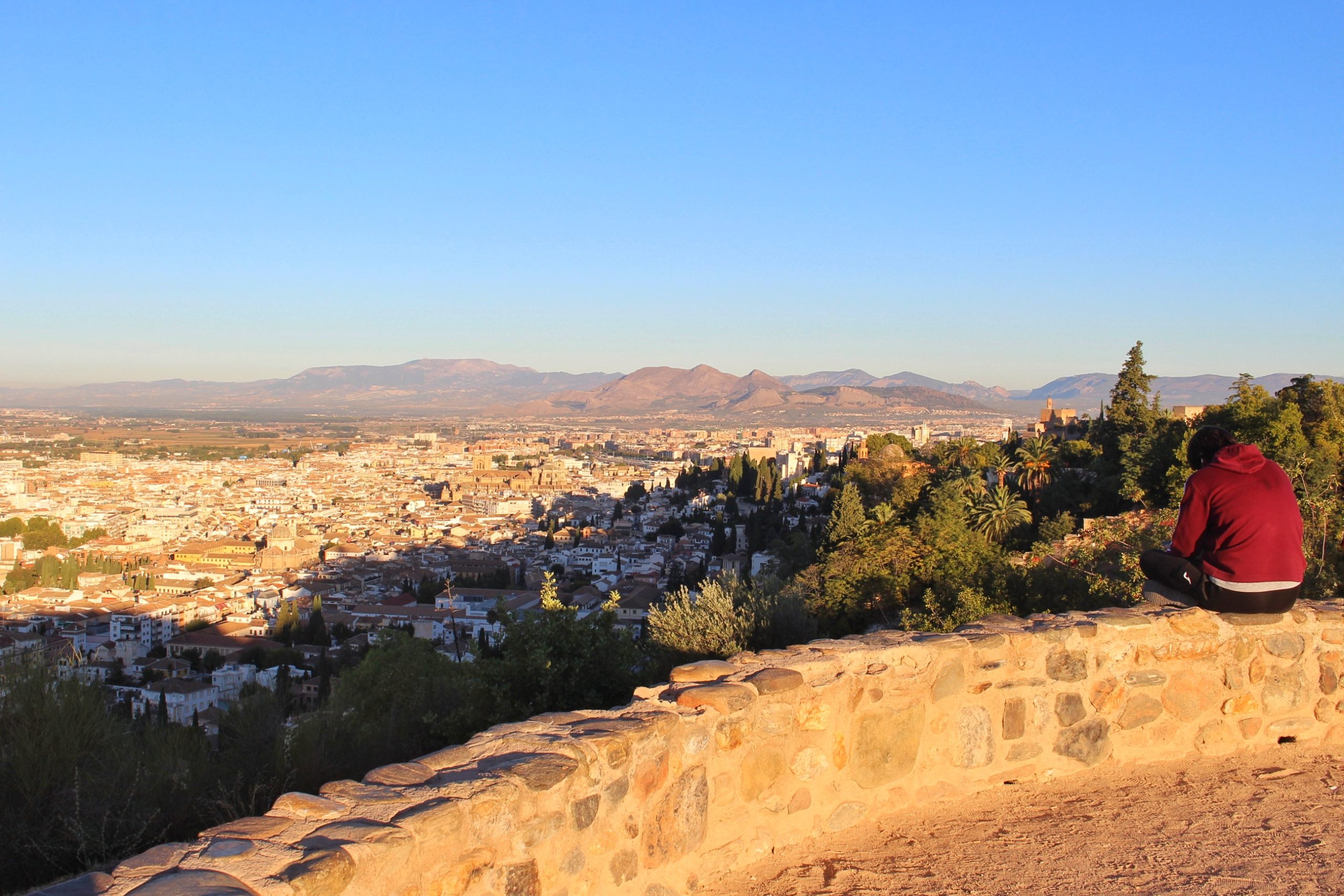

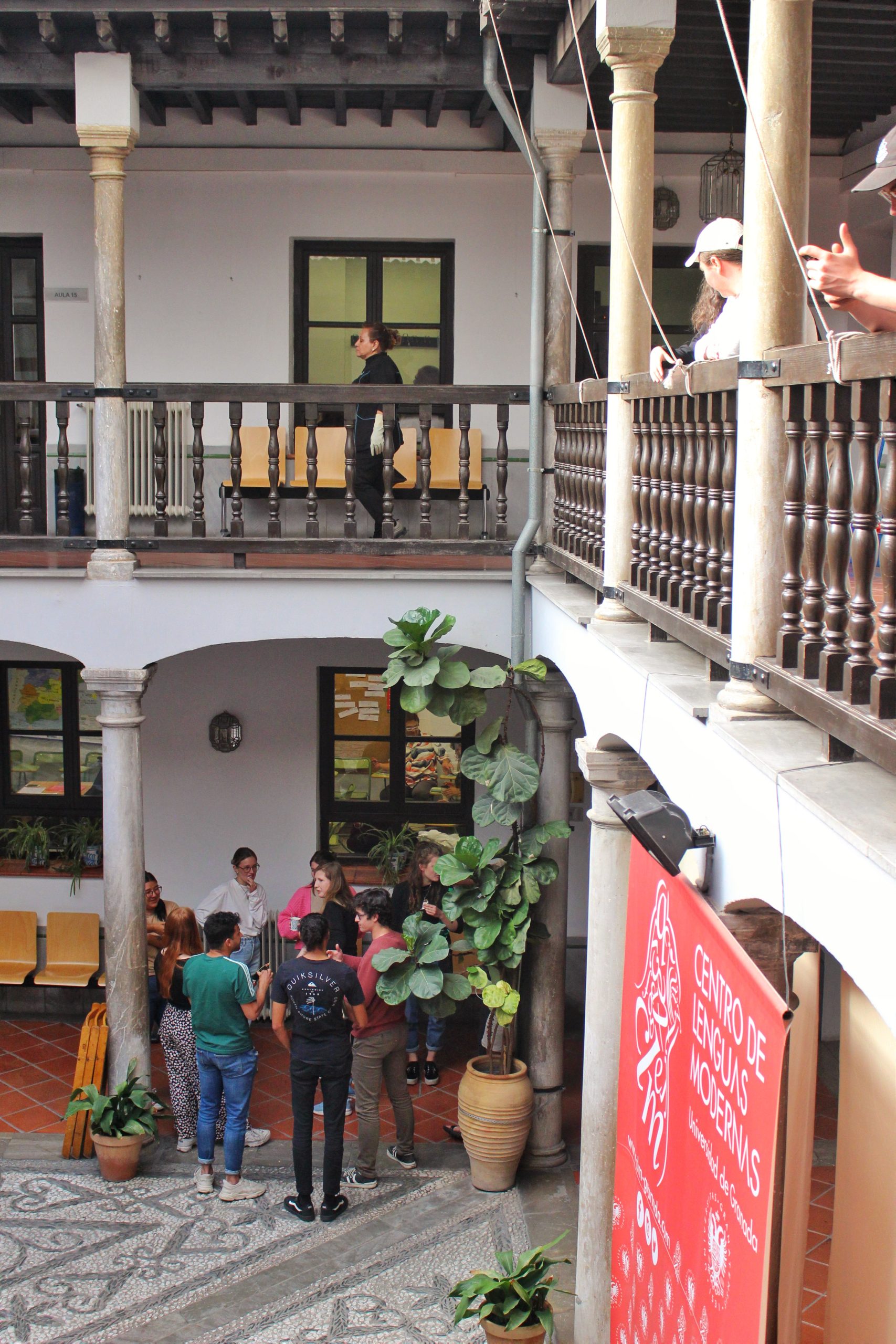

I told myself to take up a proper language class. I scoured the internet for a language school near me and muted Vikram’s daily reminder on Duolingo’s February leaderboard challenge. I called up Centro de Lenguas Modernas whilst thinking of my romantic idea to speak more than the contextual confines of my go-to ‘si’ stock-pile arsenal. I am to pin my hopes unto this language institution that nestled along the foothills of the Alhambra.
A voice picked-up and sounded how I would like to sound in Spanish. Warm and dignified with a timbre of someone who’s been singing flamenco for a very long time. Having learned from previous experiences and in order to make myself clear, I switched into English intending not to end up in class, where I could become the ‘que barbaridad.’
For every mistake I made, there was always a “no pasa nada” waiting at the end. Every day is hakuna matata.
People of all sorts wanting to learn the secrets of Spain while improving their Spanish come here, so I’ve been told. While most are exchange students under the Erasmus program and partner universities from Europe, United States and Canada, there are other programs geared for the likes of myself that only wish to attend classes twice a week. How enriching it would be to carve an image of Spain I can call my own.
I pictured myself surrounded by promising students presumably younger than me. Their youthful spongy brains would absorb things quickly against my aging cerebral cortex. How could they have it so easy? Their enthusiasm and raging hormones would one day exhaust me. Nothing is wrong with them. I just couldn’t accept if they were to beat me at my own game. A sense of panic swept over me. Si to that. Si to this. Si to everything the voice asked. I was assured that there’s absolutely nothing to worry about. “No pasa nada” the voice said repeatedly.
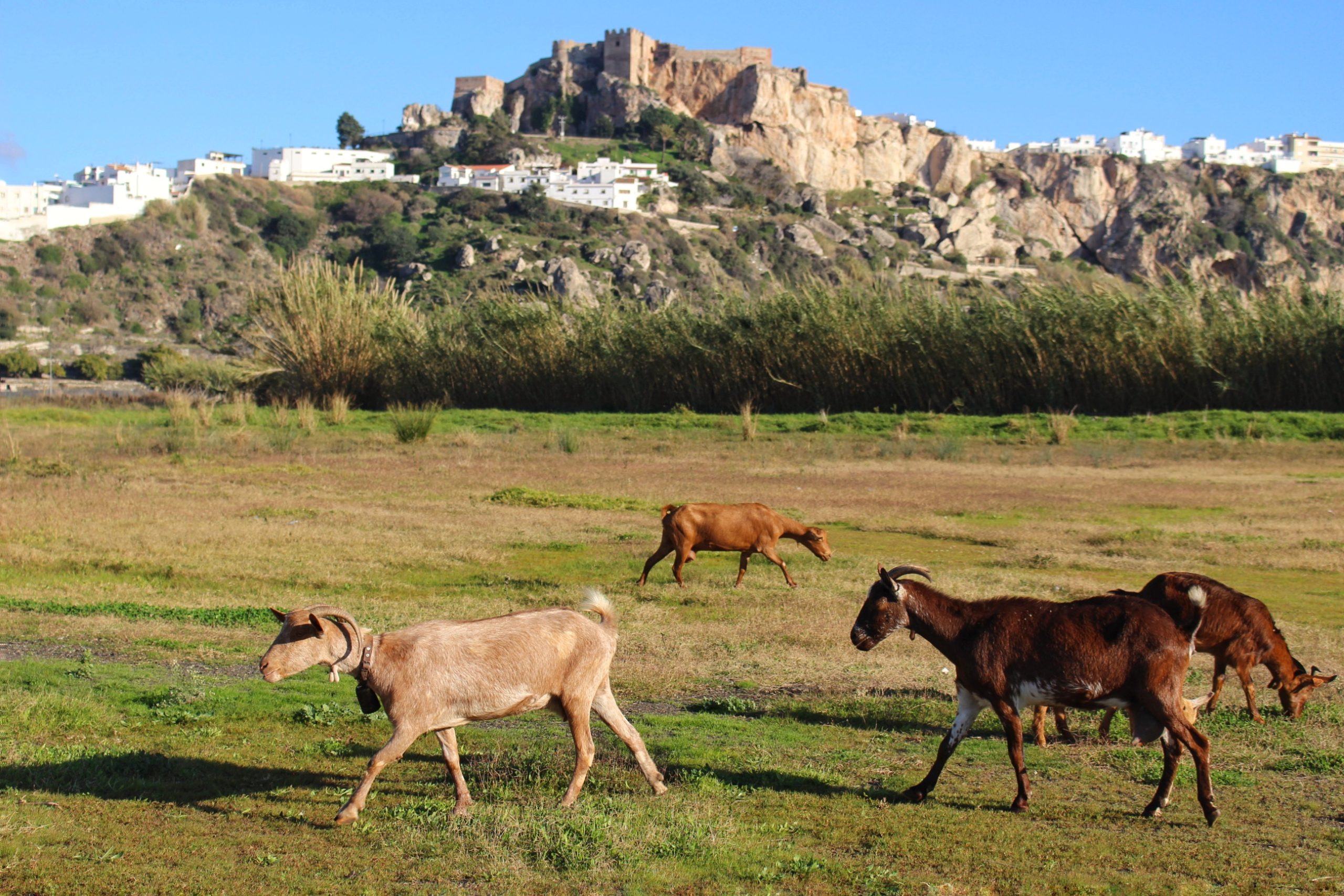

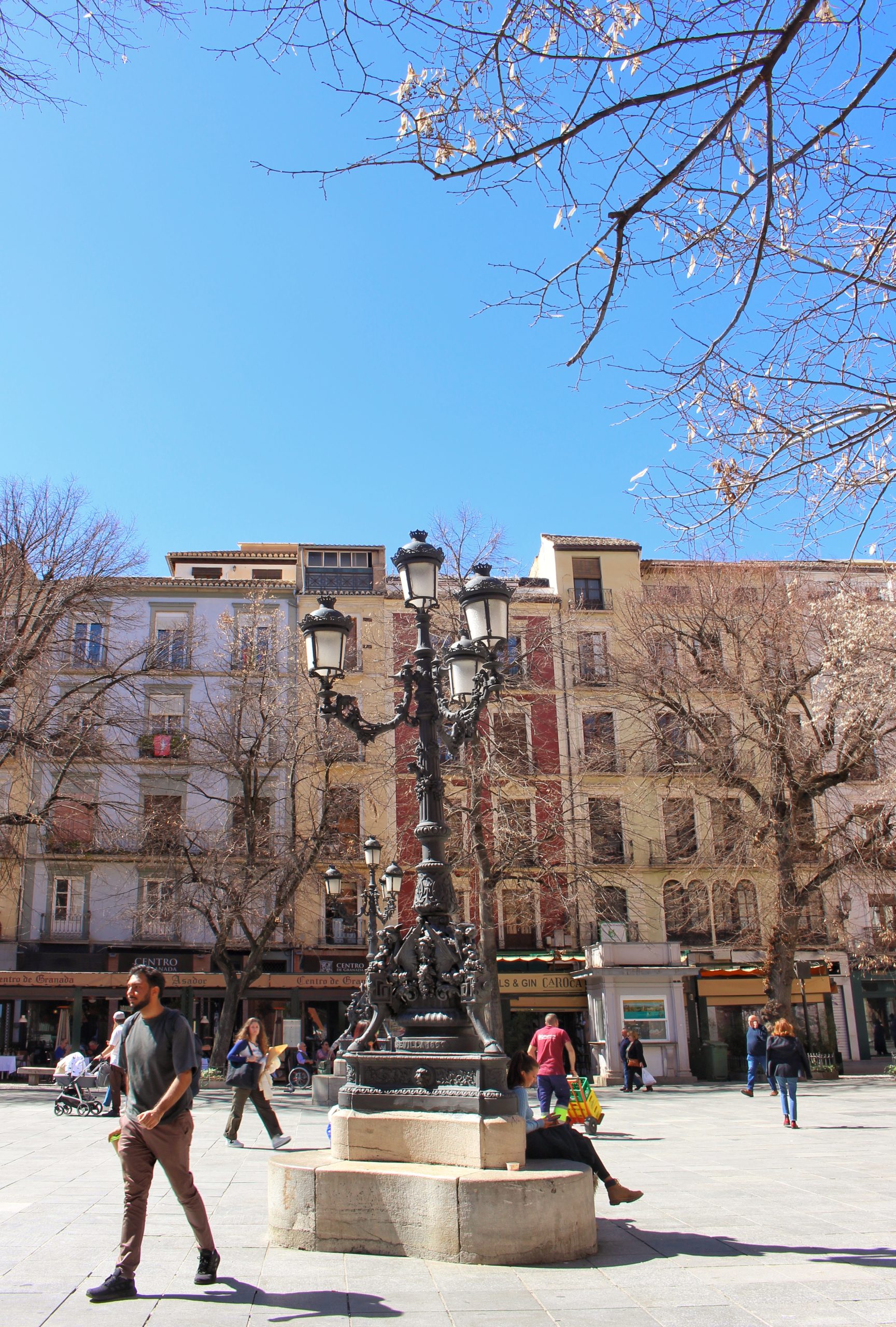

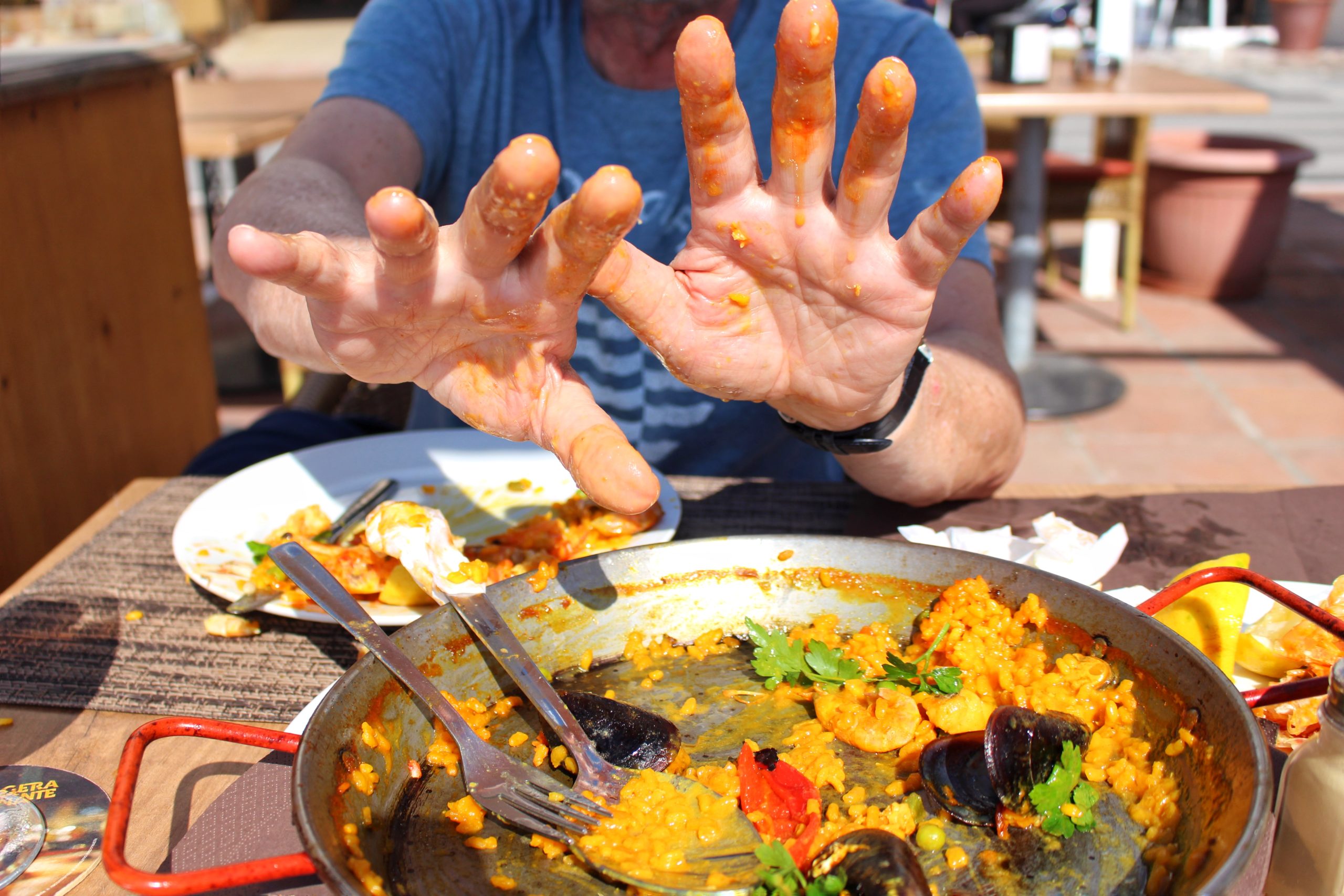

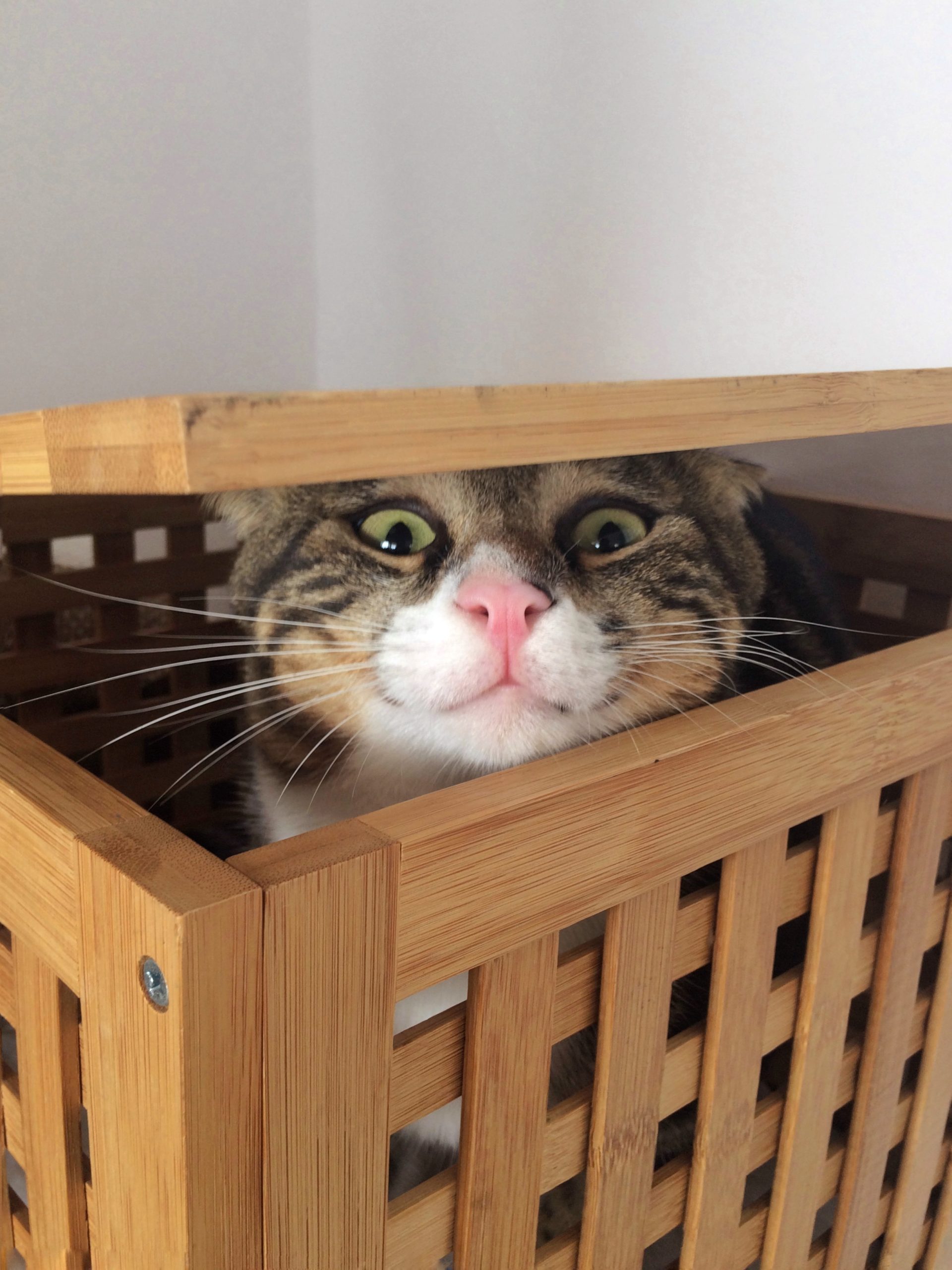

If there’s one thing about the Spanish psyche and their collective existence that makes any outsider feel at ease despite not knowing the language or no matter how stupid a foreigner sounds or speaks, it’s that “no pasa nada” carefree philosophy. The Spanish say it so freely in the same way they dip their churros in hot chocolate. No pasa nada which translates to ‘nothing happened’ or simply ‘don’t worry’.
Once I told a waiter, “I have many hombre!‘” when he asked if I was hungry. That I’d love some cabron cheese with ham for breakfast and perhaps have my huesos sunny side up. For every mistake I made, there was always a “no pasa nada” waiting at the end. Every day is hakuna matata.
The voice went over one last time to the things I have said yes to before we bid our goodbyes. My written and oral test date was set. Come March, with a sheer intensity of a bull in a corrida, I shall charge into the classroom and gore every new Spanish word and phrase straight in the groin. I will master my verbs with the conscientious rigor of a matador.
Blatant mistakes will be made. Not without shocking my professors or enthralling my woke generation classmates. With raging excitement, I could not wait to make the veterinarian roll his eyes or give the pharmacist a heart attack. With humour and familiarity, it will be my time to make the waiter blush and send the old ladies I met on the bus home with their dentures off.
I shall emerge from my intensive three month course downing a red cape, a melancholic coda plays in the background and with tears of joy I’ll say “I found España.”
Some people are extremely adept in acquiring new languages while others feel that it’s a hopeless pursuit. What was the most challenging part in learning a foreign language? Did you travel somewhere recently and impress a local flexing your linguistic prowess or did you end up offending one? Do you have a secret to dodging a tomato thrown in your face when attempting to speak like a local abroad? Feel free to share your most rewarding experiences or tragic stories in the comment section below. Love to hear from you!
HELPFUL RESOURCES:
Hola! Thinking of enrolling in a language school in Granada soon? or some time in the future? Then check out Centro de Lenguas Modernas / CLM’s comprehensive study program under University of Granada while living in one of Spain’s most beguiling cities.
BUTTER MY BAGUETTE
This website made of love strives to produce FREE CONTENT.
Help me tell more stories and keep this website free of any advertisement by supporting Flying Baguette in inspiring more people and connecting you with other cultures and communities around the globe. Donate a little or as much as you can afford to keep the magic of Flying Baguette going for years to come. Share your support through the icons below ⬇️










This was thoroughly enjoyable, I was giggling all the way through! I am not adept at languages, I wish it came to me ore easily. Vikram is currently disappointed in me, haha. Waiting for more stories!
You had me laughing with your descriptions of Duolingo. I tried learning French on the app, successfully according to their standards, only to realize both during and after that I was mostly learning nonsensical things. I can also relate with si. I pick up short, easy phrases. Like in Germany, ein bier, but then they reply in German thinking I know the language. Uuuhhhh…nein!
Haha what a delightful post Jan, this gives lost in translation a run for its money. I also like the philosophy of just pretending, smiling and nodding – or in your case Sii-ing to everything. How’s that insurance going? At least you are trying and aren’t ignorant expecting locals to switch automatically to English. I had a bit of an embarrassing time in Bratislava (Slovakia). I didn’t prepare any phrases beforehand and only just noticed when I got there asking for directions. I tried to approach the locals with Russian (Slavic language after all, so maybe I could have been lucky) and they got really angry. Then I tried English and I just saw their faces go even more sour. I had to ran when I tried it with German.
Carolin | Solo Travel Story
Why must I think of our new years resolution to say yes more?^^
I FINISHED Spanish Duolingo and was still widely unprepared to travel Central America last year. I can relate.
But the most important question is was it a young or a recent Antonio Banderas?
Enjoyed this! I love languages and did a degree in French and Italian, I’ve also studied various other languages. I use Duolingo for basics before going to a country where I don’t know the language, and have really improved my German on there. I’ve found the best way to learn once you’ve got the basics is to have tv or radio of the relevant country on in the background as much as possible, it really helps get you used to it. I used to struggle to understand spoken Portuguese (even though I could read it) then started watching a daily soap opera, at first I couldn’t understand much then one day something clicked and it became much easier. I always want to learn more languages!
I loved reading this! I can speak enough Spanish to get by whenever we visit Spain or Latin America but it’s in the realms of practical travel stuff: hotel bookings or restaurant bills or paying for a taxi, rather than dealing with complicated cat-related issues at the vet. I am certain I would be in the realms of the ‘si’ in those circumstances. My Spanish is self-taught but I had a head start with schoolgirl French and Latin. I have used the Michel Thomas ‘listen and absorb’ method as a starting point, which I found worked really well, and top it up with Duolingo’s often ridiculous phrases (Spanish seems to be more sensible than Korean – the first phrase I learned in that language was ‘the fox’s flavour’). I really admire your tenacity at the language classes. But… the most important question of all: who got that seat on the bus?
I really need to brush up on my Spanish. It’s been a few years since college.
I spent months trying to learn Spanish on Duolingo several years ago, prior to some time in Ecuador. And was feeling pretty good about myself. Until I got there. And then found myself saying mostly….Si. With the advent of Apple and Google Translate I now find myself using that crunch mostly (and thankfully). However, life in Spain does beckon. And if it does happen eventually, it will be classes for us too.
Hahaha Duolingo’s phrases are so ridiculous. I have no idea when I’ll ever need to talk about my hat-wearing cat selling sandwiches in another language… but thanks to Duolingo, I’ll be ready! Glad you’re enrolling in some real classes & hope you come out as fluent as the actors on the telenovelas 😜
I am not a natural at languages and have to work hard to master the basics. As a Canadian, I do speak English and French but am currently learning Spanish and Indonesian. You made me laugh as you described many situations I found myself in with my very limited language skills learned on Duolingo (why is Eddie such a wimp?). I often find myself incredibly confident … until I actually arrive in the country and discover there is very little need to discuss dinosaurs that live in my back garden. I learn more quickly from my ridiculous attempts and the gentle corrections of locals.
You have inspired me to take a language course the next time I am in a Spanish-speaking country. I will try to find something similar when I’m in Indonesia this month.